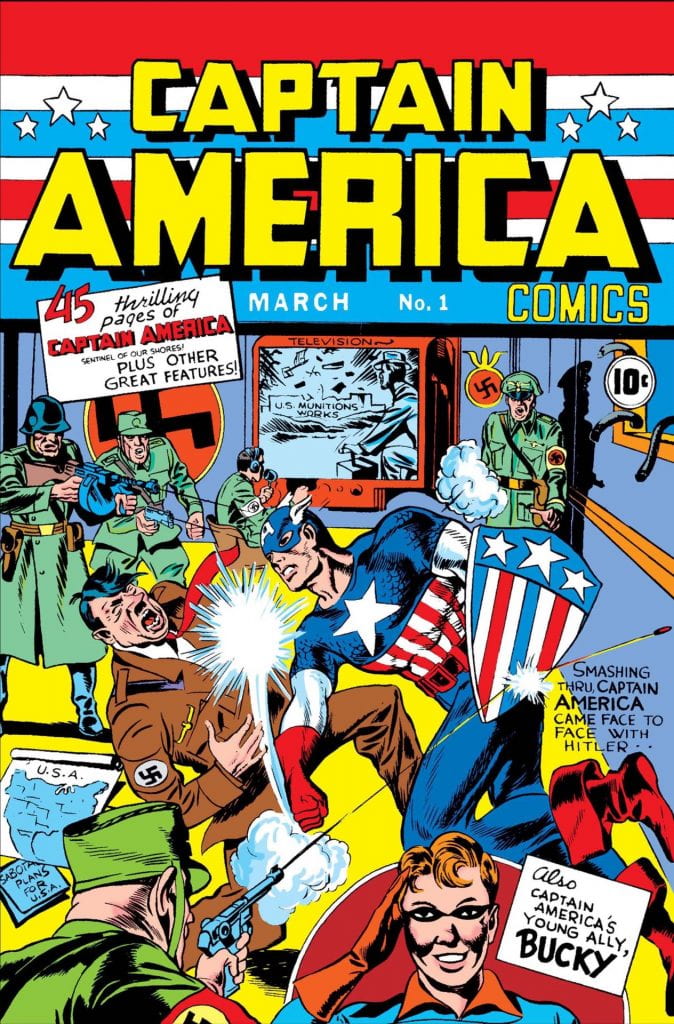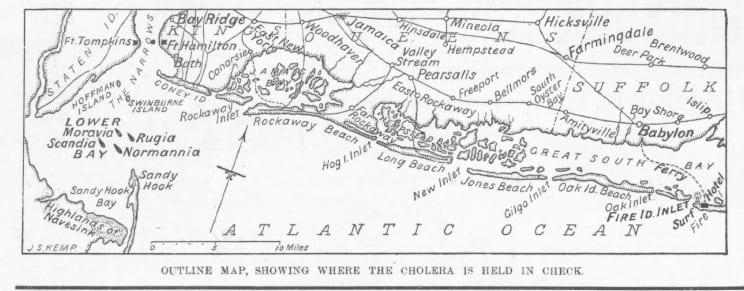In the third installment of this series we will be looking at two examples of colonists challenging established relationships of authority and the deferential society of the early colonial period through the New Jersey Land Riots and Leisler’s Rebellion. Before we talk about the specific challenges to authority it is important to understand what it was to have public power in the early colonial period. As I have come to understand it, power and authority were generally acknowledged by an unspoken social contract. Early colonial society was very deferential. Authority was given to those of a higher social standing with the accompanying wealth and connections because it was believed that those who had no material wants were more detached from their own needs and could thus concern themselves with the interests of the commonweal. If a public figure was not acting in the interests of the public good then the people had the prerogative to express their dissatisfaction and remind the offending figure of the duty their privilege conveyed.
Author: Post Editor (page 2 of 2)
Today we will be looking at some forms of protest and dissent which colonial merchants and consumers engaged in, as well as some interesting incidents that followed. After the French and Indian War, or the Seven Years War as it was known globally, the British Parliament passed a series of acts imposing taxes and importation duties on food and material goods in an effort to pay for the war and future defense of the colonies. Years of inconsistent, unenforceable, and incomprehensible policies established a loose, laissez faire style of colonial governance that was very favorable to the colonies. Many in the economic, merchant, and supply occupations prospered and contributed, through their trades, to the relatively higher quality of life and opportunities in the colonies as a whole. As a result, a majority of the colonists were resentful of the efforts of such men as the British Chancellor of the Exchequer Charles Townshend to reassert imperial control over the economy and governance of the colonies. So, how did colonists voice their discontent with imperial policy? Let’s get into it.
Immediately following the murder of Mr. George Floyd Americans took to the streets to voice their support, sorrow, frustration, anger, and disappointment in a manner and magnitude that people of my generation have not seen, and America has not seen, since the Civil Rights era. In the midst of a global pandemic no less! Current events have me thinking back to our early beginnings as a collection of provincial colonies clustered along the North American coast. The First Amendment protects our most valuable rights: religion, speech, and the ability to protect these rights through peaceful assembly and petition.
With approval from Governor Flower, Jenkins had purchased the debilitated Surf Hotel from proprietor David Sturges S. S. Sammis for the inflated price of between $210,000 and $250,000. In the 1850s Sammis opened the hotel, an immensely popular and profitable summer resort in its time that had fallen into disrepair by the 1890s. After the purchase Jenkins had the site cleaned up and staffed with a manager and physician, and police guards. In anticipation of the passengers of the Normannia and their five-star quarantine, “Forty French cooks and waiters” were requested but never arrived. They “were stopped at Babylon and stoned,” effectively preventing them from embarking for Fire Island. For selling the property to the state as a quarantine site Sammis was threatened with a tar and feathering by unidentified individuals.
“I knocked out Adolf Hitler over 200 times,” says Captain America in his title Marvel Studios film. And we laughed, because Chris Evans’ comedic timing is gold, but also because, good, knock him out again. Captain America was first published by Timely Comics, Marvel’s predecessor, in 1941, and he was a quick favorite during the wartime for obvious reasons. He fought for what was right, and every time he got knocked down, he got back up again, and that’s what the people needed during World War II. It should come as no surprise, then, that during the tail end of the Great Depression and into the long years of World War II, we have something referred to as the golden age of comics.
I think it was around the second week of quarantine here in New York that I discovered marble racing. I was on Twitter, naturally, and I saw a video start up from someone or some account, I don’t remember, but I do remember thinking, “Wow, it mustbe bad if I can’t stop watching this.” It was a marble racing video from something called Marbula 1, and yes, it is just as good as it sounds. Marble racing got some pickup on Twitter as a result of some popular accounts reposting their videos, even earning air time on ESPN The Ocho, and with the quarantine putting a stop to most sports’ seasons, it shouldn’t come as a big surprise. We have something of a history of reviving sport and competition even when the future seems bleak.
Stores had “Business as usual” signs on their windows, but life was hardly “as usual” in London during the Blitz. Beginning in September 1940, German bombs fell on London at night. For their safety, millions of children from the capital were sent away to live with family, friends, or volunteers in the countryside. For those who stayed in London, life changed dramatically. London’s East End was hit particularly hard, with many of the foreigners who lived there losing their lives and homes. Food and clothe rationing meant every piece of land was used to grow extra food and people were given “coupons” to obtain the clothes they needed. At end of the Blitz, over 40,00 people died and over a million left homeless.
In my previous post, Being Blue in New York, I sketched out a brief history of cholera in New York City and the development of disease theory and of prevention and management strategies over the course of several outbreaks. Today I am going to talk about quarantine, class, and immigration.
The Aeneid was written in a time that would feel familiar to all of us: political strife, civil unrest and decades long military campaigns that never quite seem to end. Towards the end of the 1st century BCE, after at least 50 years of continuous conflict within and beyond the Roman borders, Augustus, Julius Caesar’s heir, emerged victorious from the Battle of Actium, defeating Mark Antony and marking a turning point in history. Augustus declares himself the princeps civitatis of Rome, a term that literally means “first citizen” but actually means “emperor”, and so falls the Roman Republic to the dawn of the Roman Empire. Continue reading
During the Great Depression, unemployment soared as Americans grappled with failing banks, environmental catastrophe, and the challenge of feeding themselves while impoverished. Due to the hardships of poverty faced by millions in the 1930s, the Great Depression remains one of the most notorious periods in American history. Echoes of the Depression can be felt today, in news articles and interviews where people express fears that the COVID-19 pandemic will again force much of the world to face severe economic decline and unemployment (1). Now that we have faced the initial shock of the pandemic and attempt to adapt to the requirements of social distancing and staying at home, articles on Depression-era cooking are surfacing. Whether advice on how to make a ‘Depression Cake’ without milk, butter, or eggs or minimal ingredient recipes such as ‘Depression Bread,’ people are clearly turning to the food of the Great Depression for comfort while coping with limited resources and the stress of the COVID-19 pandemic (2).
© 2025 Crisis and Catharsis
Theme by Anders Noren — Up ↑




